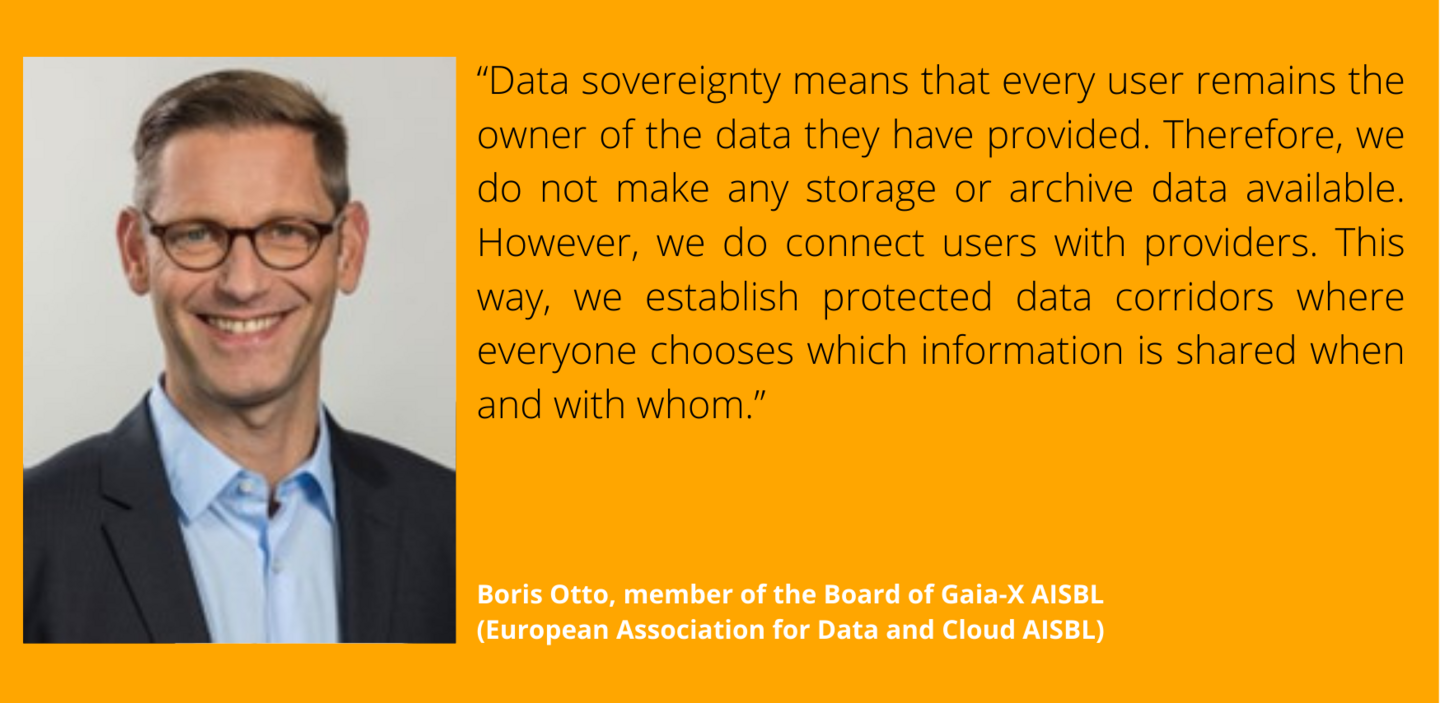Gaia-X and Catena-X on a joint mission
Gaia-X stands for security and trust in the digital space: Pan-European requirements must regulate the handling of data systems. Catena-X transfers these principles to the automotive value chain.
European standards for general data sovereignty
Cashless payments are now taken for granted, and online trade is booming. Digital business models represent an enormous potential, yet at the same time also challenges. Even one data leak can cause damage, both to the company affected and to the owners of the data. Data protection regulations are consequently strict. However, the links between software, server and cloud are not always transparent.
This is what the international Gaia-X association wants to change: Digital interaction must become secure, simple and comprehensible. Almost 350 companies are involved in developing European standards, and one of the common goals is data sovereignty.

This means enormous time and cost savings for users: Defined processes reduce complexity and make possible new, powerful and competitive collaboration so that users do not have to become familiar with different data systems.
Gaia-X provides the basis for the entire data system, including the architecture, open-source software and certifications:
- The architecture describes which functions, modes of operation and roles are needed to unite different technologies and organisations (= interoperability).
- Open-source means a software application does not need to meet specific requirements. Instead, any company can use them to meet its needs. An essential requirement, for example, is for locally active small and medium-sized enterprises (SMEs), which frequently lack the expertise and infrastructure to become involved online.
- Gaia-X also tests and certifies processes, software and tools. On the one hand, certified quality products stand for legal conformity throughout Europe, while confirming compliance and data protection at the same time.
The development is more specific in so-called hubs. For example, at the national level, experts in specific sectors work together to ensure that their individual needs are incorporated into the overarching global development process – such as for the financial and health sectors or even for public administration. In addition, country-specific Gaia-X hubs are forming.
Catena-X is Gaia-X’s first implementation project
Ten concrete use cases show the benefits of continuous data chains and secure data exchange. All are based on the standards Gaia-X has developed for data sovereignty, interoperability and for trusting, transparent collaboration. The following diagram shows the way the various topics and responsibilities are related:

“Catena-X has what it takes to become a true flagship project for the automotive industry. Sustainable value creation networks call for continuous data chains. The ability to establish the necessary trust with data sovereignty technologies will fundamentally change the cooperation of all parties involved,” stresses Boris Otto.
